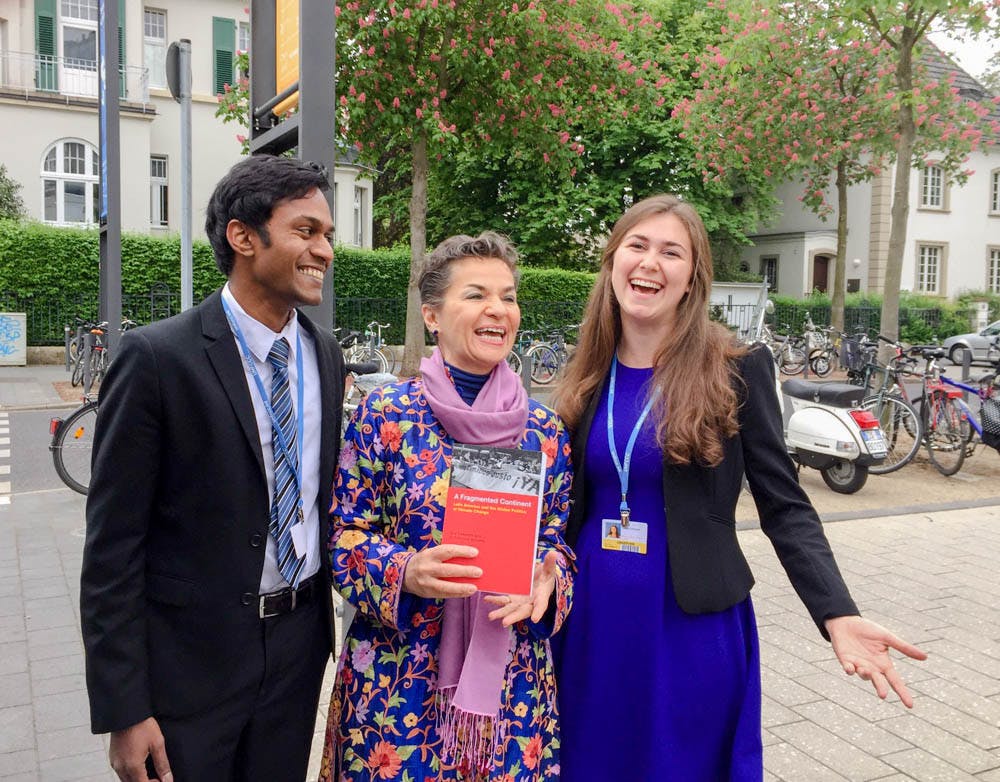Researchers at the university’s Climate and Development Lab have published a paper evaluating different financial options to pay for damages caused by climate change.
The paper, “Financing options for loss and damage: a review and roadmap,” aims to provide an accessible framework to advance negotiations regarding irreversible loss and damage caused at least partly by climate change under the United Nations Framework Convention on Climate Change, said co-author Victoria Hoffmeister ’17.
Published in late October by the German Development Institute, the paper comes on the heels of the Paris Agreement, an agreement on greenhouse gas emissions that officially went into effect this month. In March, the researchers submitted their work to the Warsaw International Mechanism on Loss and Damage Executive Committee of the UNFCCC, which is currently hosting its Climate Change Conference in Marrakesh, Morocco.
The paper focuses on the two-year workplan developed by WIMLDEC, which was entrusted with the task of addressing financial loss and damage associated with impact of climate change in November 2013. The paper first clarifies the language and terminology used in the committee’s workplan and then evaluates its proposed financial tools and other innovative methods.
Many of the financial instruments proposed by WIMLDEC, such as risk insurance on future catastrophes and contingency finance for emergency use, “tend to only really address sudden climate change disasters and not slow onset or high-frequency climate change effects,” co-author Sujay Natson ’16 wrote in an email to The Herald.
Among several measures, the paper reviews the impact of levies on air transport as well as the use of global carbon pricing, which is “a worldwide system of carbon pricing in the form of either a tax or auction revenues generated from a cap-and-trade system,” according to the press release.
Natson wrote that, among many innovative options, the researchers regarded the global carbon tax, bunker fuel levy on air and maritime transport and fossil fuel levy as some of the best tools overall.
The researchers initially decided to write the paper at the request of Saleemul Huq, director of the International Centre for Climate Change and Development in Bangladesh and advisor to the Least Developed Countries in the UNFCCC. Huq’s research focuses on the link between climate change and sustainable development, specifically in developing countries.
Developing countries are the most severely impacted by loss and damage because of the lack of resources and robust infrastructure, Hoffmeister said. “How are we going to handle the fact that these losses and damages are occurring … most frequently and severely in (the) most vulnerable countries that did (the) least to contribute to the problem of climate change?”
Discussions on loss and damage have historically been “avoided by many developed countries for risk of compensation they might have to provide to developing countries — as we are undergoing climate change globally due largely in part to the past industrialization of developed countries,” Natson wrote.
“When possible, preventing losses and damages … should obviously be the priority for moral and pragmatic reasons,” wrote co-author Jon Gewirtzman ’17 in an email to The Herald. “It looks increasingly unlikely that sufficient action will be taken to avert disastrous impacts of climate change, and losses and damages are going to occur.”
Several of the co-authors are attending the UNFCCC Conference of the Parties in Marrakesh between Nov. 7 and 18.
“The issue is pretty hot here (in Marrakesh), as no one still knows how this issue will be dealt with or paid for,” wrote co-author J. Timmons Roberts, professor of environmental studies and professor of sociology, in an email to The Herald.





